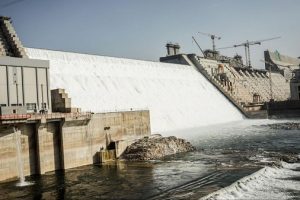History is not only made through new breakthroughs. But achievers also strategize to maintain their ageold values intact so as to continue with their progress in the economic, cultural, political and technological relams.
Ethiopia has seen various governments in its history of modern state formation that parties often exercise power to mud smear the efforts of their predecessors. Our leadership invested much in propagating wrong doings of the past cultivating hatred and vengenance instead of calming down bitterness and promoting visionary outlooks. Insult and blameshifting dominate and characterise the overall behaviour of our political and professional elite.
The prevailing dicourses do little to promote constructive critisism and positive dialogues. When there are emerging attempts they often loose track as they often fall in the wrong hands who neither are able to reform themselves nor invite the wise to delibrate. Hence, garbage in and garbage out, making the the attempts just a futile exercise.
The state and private media have often fallen a trap of such unhealthy propoganda. In doing so, they play a mjor role in blocking transformative ideas and arguments to transpire to the public. They had no place and format to entrtain such development agenda but to repeat the consensus-ridden political manifesto-based rehetoric in boring ways.
The state and private media have often fallen a trap of such unhealthy propoganda. In doing so, they play a mjor role in blocking transformative ideas and arguments to transpire to the public. They had no place and format to entrtain such development agenda but to repeat the consensus-ridden political manifesto-based rehetoric in boring ways.
The value of argumentative thinking and knowledge production experience has lost ground with the loss of respect to education and educators in both the state and societal levels in the institutions of modern day Ethiopia. In every corner, paper holder cadres dominated decision making seats kicking professional thinkers and professionalism out of the nation building project.
While a number of reform agendas and programs are currently underway by the PM Abiy Ahmed’s reformist governemnt, they are still haunted by practices and unreformable leadership. The cadres often fail to bring into light the commending initatives along with suggesting mechanisms to follow up the progresses and monitor the results. I understand how tough and challenging this will be for systems that for long emphasized Baptist thier development armies with empty slogans and measure outputs through success in mobilizing and leading campaigns.
Real engagement, however, transcends into a fruitfull future and it is difficult to put [what?] in place without knowledge and naïve strategies. A good example of this is the the scrutiny over the ‘collaborative’ effort to save lake Tana from the threat posed by Eichhornia crassipes. For a nation that is building the Grand Ethiopian Reniasanace Dam and under political reconstruction to build and rewrite the image of the country beautifully in green, this is an assignment long overdue.
Planning to maximize the revenue from the tourism sector can not materialize through unilater investment in a single project. Hence, providing strategic leadership by mobilizing the greater public, the Ethiopian diaspora, friends and committes of nature and heritage conservation globally should become a priority agenda of the regional government, concerned federal government Ministries, the Ethiopian Orthodox Church, and Ethiopians as a whole. Our collective ignorance and inefficieny should not victimize the lake and the tangable and intangible heritages it houses. Tana is not just a lake. It recognized as UNESCO Biosphere Reserve for its ecosystem functions and services. The lake is home to islanders, wide range of plant and animal boidiversities, ancient monastries, tourist attractions and source of more than 50% of Abay, the water that makes GERD to light our future. Due to incation, which is structurally embeded in our political culture, the lake is under challenge as if it has no owner. It requires a collective effort of everyone of us while regional government bodies shall faciliate frontline support to orderly guide unorganized saving attempts scattereed here and there.
Tana’s health should concern all countries in the Nile Basin. The contribution of the lake to the local communities through creating income generation opportunities to diversify livelihoods from toruism activities and its potential of producing more than 10,000 tonns of fish annually is at now at risk.
Water hyacinth colonized over a third of the shoreline of the lake and has expanded to cover more than 51,000 hectares of the water in the lake over a period of a decade. Apart from its potential damage to the lake’s ecosystems and its effect on local livelihoods, the weed interfers with hydro-electric power operations. According to studies conducted in South and Eastern Africa including Ethiopia, water hyacinth clogges into water cooling systems and blocks turbines forceing power production to come to a halt and distribution to be interrupted. This calls the need for urgent attention to sustainably put the expansion of the weed undercontrol. Failure to halt the weed’s expansion today will reflect badly on GERD tomorrow. We build to produce, use and reap the benefits of the massive investment in the future.
The revenue we are going to generate from the energy sector should not be spent on maintenance services that could have been avoided through minimal investments to control the weed now.
The expectations of Ethiopians to benefit from uninterrupted electricity for use at home and for export outside must not be compromised by our negligence to fight a small weed. The fight with water hyacinth demands our serious attention. It is a battle Ethiopia cannot afford to loose. The way forward to save Tana is to refrain from blameshifting and to look for an alternative pathway to our unsustainable and destructive campaign-based work ethic.
Similarly, while critisism over late response of the leadership is valid, it does little to bring a solution to such a grand challeneg. Rather, now is time to pass the resources to frontliners to complement their saving missions to clean the dirt on Tana. All stakeholders; at local, national, and regional levels should gather efforts to design appropriate and meaningful measures to save our two legends, Tana and the GERD.
The future of cooperation and development over Nile in the basin is under challenge requiring Ethiopia to take the lead to address such important basin wide threat. GERD with out Tana is an empty barrel, so does life dependent on Nile.
Ed.’s note: Samuel Tefera Alemu (PhD) is an Assistant Professor at the Center for African and Oriental Studies and Associate Dean for Research and Technology Transfer, College of Social Sciences, Addis Ababa University He is reachable through: samuel. tefera@aau.edu.et.
The Ethiopian herald June 5,2020
SAMUEL TEFERA (PHD)



